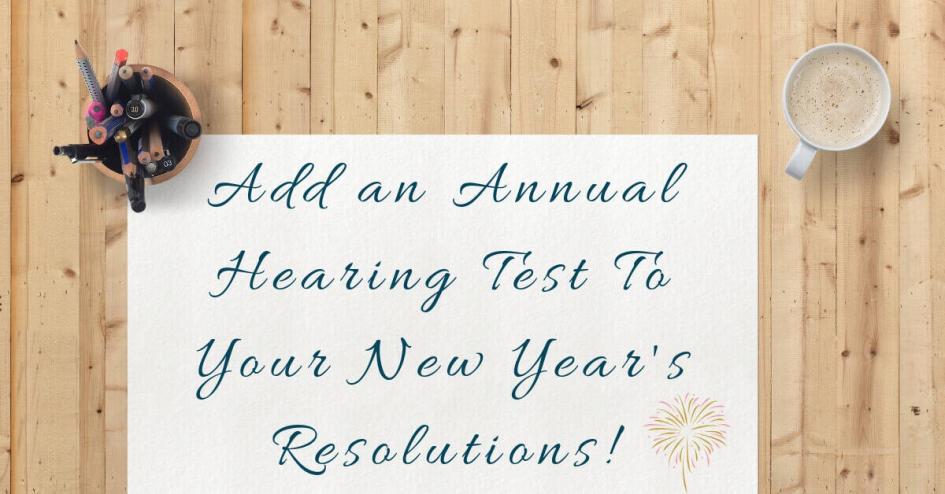
Add an Annual Hearing Test To Your New Year's Resolutions!
Making a New Year's resolution is a great way to make a positive change in your life, whether it means getting that gym membership, prioritizing sleep, or taking steps towards financial literacy. But there’s one new year’s resolution that you might not be able to avoid much longer: taking care of your hearing. About 9 million people in the UK have hearing loss. This is equal to 19 percent of the total population, or if you’re into fractions, 1 in every 7 of us. And with the rise of personal media devices like smartphones pumping endless content into our ears, this figure is projected to rise in the future. All of this means that it’s a great time to think about some hearing-related new year’s resolutions. Here are a couple:
New Ear’s Resolution #1: Get Your Hearing Checked Once a Year
If you suspect any damage to your hearing, the first thing you should do is get your hearing tested. This could include a pure tone test and/or a speech perception test. The tone test will check to see which frequency of tones you are able to hear. In the speech perception test, you’ll plays a game of ‘Chinese Whispers’ with a series of audio recordings, which gradually lower in volume until the you cannot make sense of the excerpt. Aside from these tests, you will also have a physical check-up of your ears to see if there is any build-up of wax or other fluid, or any signs of injury or infection. The results you get from the test become a ‘baseline’ by which all subsequent hearing tests can be measured. You can get a free hearing test on the NHS but the wait times could be a few weeks. So if you are needing to go sooner then it’s probably worth the expense to go with a private provider.
When do I need my ears checked?
It can be tricky to know when the best time is to get your hearing checked. This could be because too much noise doesn’t cause a lot of symptoms. Think about how little your ears hurt after a loud concert. We tend to pay attention to things that stimulate our pain receptors, but this doesn’t happen with hearing damage. We might get some ringing after the concert, but then it goes away, and we stop paying attention to our ears. But some damage could remain long after the music has finished. You may find it difficult to hear high-pitched sounds, or understand speech in noisy environments. As your hearing declines, lower pitched sounds then become muffled and hard to understand. For those who are over the age of 60, experts recommend getting tested every year, as those in the upper age brackets form a higher percentage of hearing loss sufferers than younger people.
New Ear’s Resolution #2: Protect the Hearing You Still Have, While You Still Can.
We live in a noisy world, but it is more than simply annoying. It is actually the biggest cause of hearing loss. Called Noise-induced hearing loss (NIHL), you will damage your hearing when exposed to sounds at just 85 decibels. Consider the fact that parts of the London Underground are up to 110 decibels in volume, or ‘as loud as going to a rock concert’ according to a recent article in the London Evening Standard. Are you being exposed to this noise daily? This can cause irreversible damage if you are exposed to it for a long enough time. If you are a regular commuter on noisy public transport, consider using earplugs to block the noise. Likewise, if you usually turn up the volume on your earbuds when the world around you is noisy, you might want to consider investing in some noise-reducing headphones. That way you won’t have to turn the volume up so high in the first place.
House of Hearing
Getting the right help for your ears has been linked with a number of benefits. New users of hearing aids have reported improved communication with their loved ones, an easier time listening to others and the world around them, and a general increase in the quality of their life. According to the charity Action on Hearing Loss, only about 40 percent of us who need hearing aids actually use them. Are you part of the remaining 60 percent? Make 2019 the year you take control of your hearing. Schedule a hearing test with House of Hearing today!
Our Clinics
All House of Hearing clinics are in town centre locations and accessible to public transport and parking. Home visits also available if mobility is an issue.


.png)
.png)
.png)

.png)
